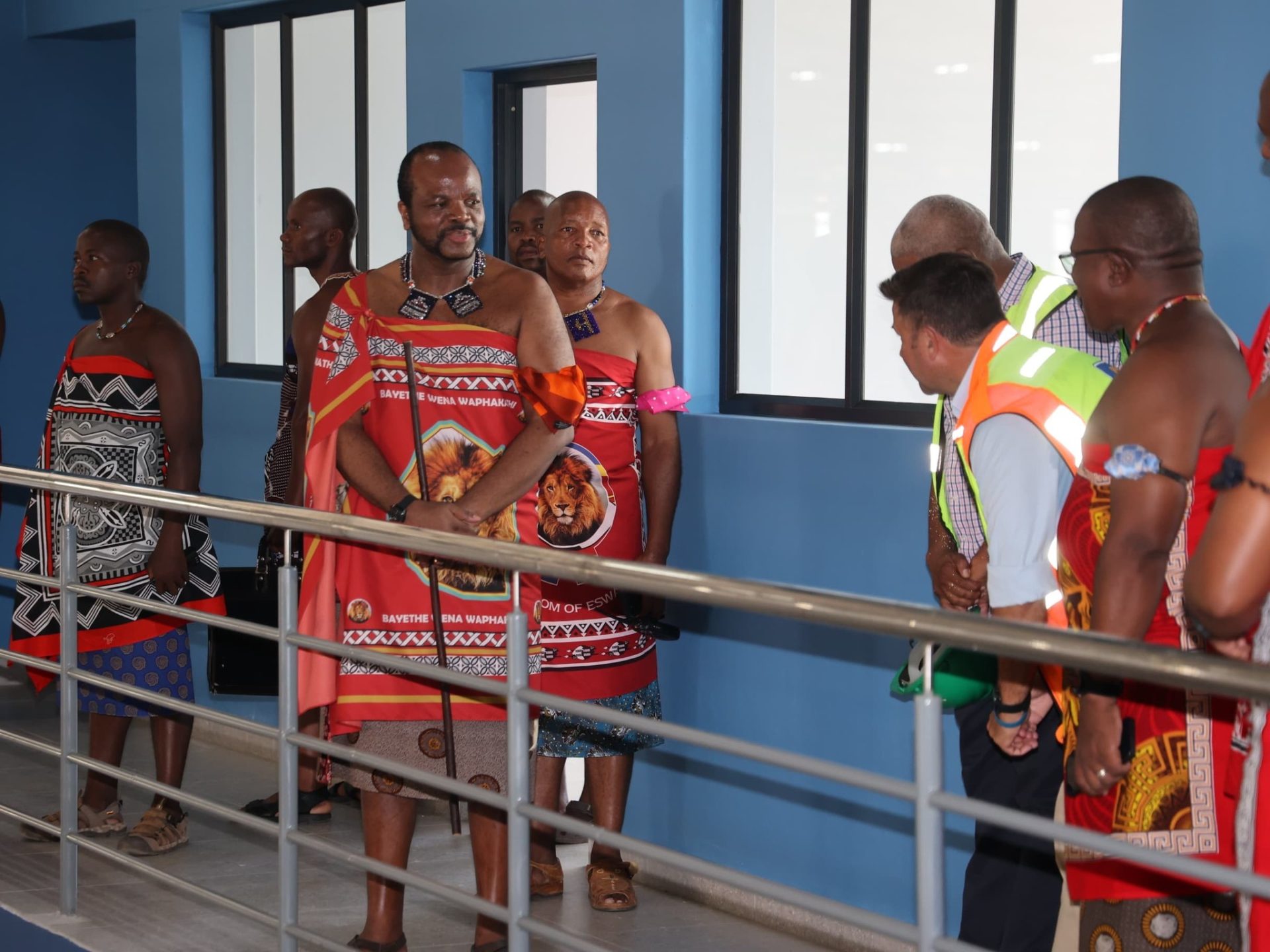By Thokozani Mazibuko
His Majesty King Mswati III inaugurated the Ndzevane factory shell, a pivotal project under the Decentralisation Programme aimed at alleviating poverty and creating employment opportunities for emaSwati.
The new facility, set to operate under Sigma Clothing, is poised to employ over 1,000 individuals in its initial phase.
During the launch event, held this afternoon in the Lubombo Region, King Mswati III emphasized the transformative impact community factory shells will have on local economies.
RELATED: Eswatini edges closer to universal energy access with World Bank-funded ASCENT Project
“Such projects come with facilities such as water and sanitation as well as electricity, thereby benefiting the communities around them as they are able to access these services at lower costs,” he stated.
“We now hand over this project to the community.”
The Ndzevane factory shell is part of a broader initiative to construct ten factory shells annually, as outlined by Minister of Finance Neal Rijkenberg in a previous statement in Parliament.
This strategy aims not only to create jobs but also to attract substantial investments totalling E1.047 billion, with an expected generation of approximately 4,000 new employment opportunities each year.
For the current budget, E140 million has been allocated to construct these vital industrial spaces.
As part of King Mswati III’s tour, he also visited the Gamula factory, which already functions as a training centre and is engaged in garment production.

These factory shells are crucial for both local development and for positioning Eswatini within the global textile market, with products to be supplied to companies locally and internationally.
The launch of the Ndzevane factory shell is a significant step towards economic progress in the country, particularly in rural areas where job opportunities can be scarce.
As the factory becomes operational, according to the King, residents of the Lubombo Region are poised to benefit from new employment opportunities and enhanced access to essential services.
The enthusiasm surrounding the project is palpable, with many community members eagerly anticipating the positive changes this new factory will bring to their livelihoods.
It should be noted that as the King concluded his speech, there was a sense of hope and determination among the gathered crowd, signalling a brighter future for the emaSwati as they embraced this new chapter of industrial growth and development.


